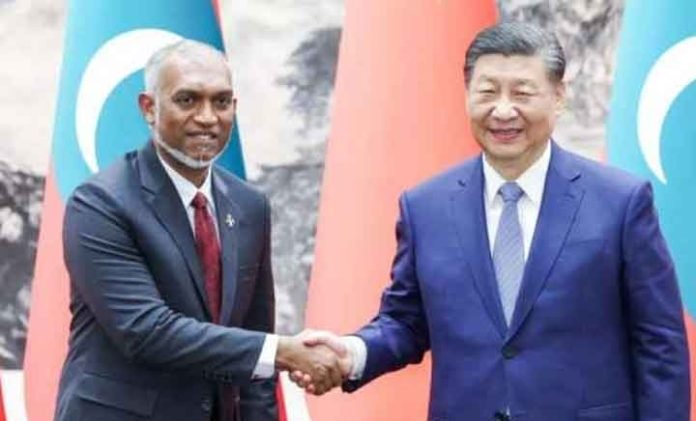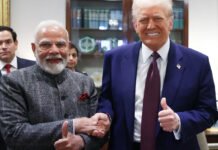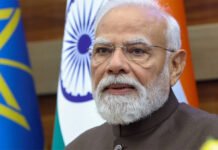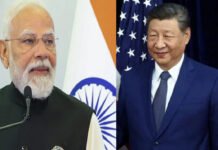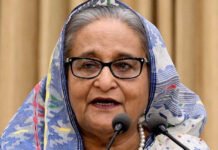INVC NEWS
Maldives : The Maldives is witnessing a political storm that could potentially reshape its leadership. President Muizzoo, whose diplomatic maneuvers have sparked controversy, finds himself at the center of a brewing crisis. Reports suggest that the Maldivian Democratic Party (MDP) has initiated an impeachment motion against the President, while the ruling coalition vehemently opposes any such move.
The Impeachment Motion: A Political Chess Game
The opposition, led by the MDP, has mobilized its forces, alleging President Muizzu’s alignment with China and strained relations with India. A clash erupted in the Parliament over the approval of cabinet members, further fueling tensions. MDP MPs claim to have garnered sufficient signatures for a no-confidence motion, setting the stage for a potential ouster.
In a press conference, Ahmed Salim, leader of the opposition party PPM, declared their staunch resistance to any conspiracy aimed at removing President Muizzu. The ruling coalition, consisting of the Progressive Party of Maldives (PPM) and People’s National Congress (PNC), asserts that they will not allow the no-confidence motion to pass under any circumstances.
Parliamentary Maneuvers: The Numbers Game
As the political drama unfolds, attention turns to the parliamentary arithmetic. With a total of 80 members in the Maldivian Parliament, securing 56 votes is crucial for the impeachment of President Muizzu. The MDP, with 45 members, aligns with The Democrats, which holds 13 seats. On the opposing side, the PPM-PNC alliance has 15 members. Independent members and smaller parties hold the remaining seats.
Recent amendments to the Standing Orders of Parliament have streamlined the impeachment process, potentially making it easier for the opposition to present their case. The MDP claims to have unanimous support within its parliamentary group, emphasizing that they have followed constitutional procedures to initiate the motion.
A Diplomatic Tightrope: China, India, and President Muizzu
President Muizzoo’s diplomatic strategies have been a source of contention, particularly regarding his approach to China and India. The approval of cabinet members with pro-China inclinations has drawn criticism, leading to heightened tensions within the Parliament.
The opposition, fueled by anti-China sentiments, is determined to oust President Muizzu, accusing him of jeopardizing the historically strong ties with India. The clash over cabinet appointments further underscores the deep-rooted divisions within the Maldivian political landscape.
The Road Ahead: Uncertain Horizons for President Muizzu
As the Maldives stands on the precipice of potential political change, the fate of President Muizzu hangs in the balance. The opposition’s push for impeachment, supported by a strategic alignment of parliamentary forces, sets the stage for a critical juncture in the nation’s political history.
The dynamics of this evolving situation are complex, involving geopolitical considerations, parliamentary maneuvers, and the delicate balance between pro-China and pro-India factions. The coming days will reveal whether President Muizzu will weather the storm or succumb to the mounting pressure orchestrated by the opposition.
In conclusion, the Maldives is at a crossroads, and the political landscape is poised for a seismic shift. The fate of President Muizzu hinges on the intricate interplay of parliamentary politics and diplomatic allegiances, making this a story of paramount significance in the Indian Ocean region.

